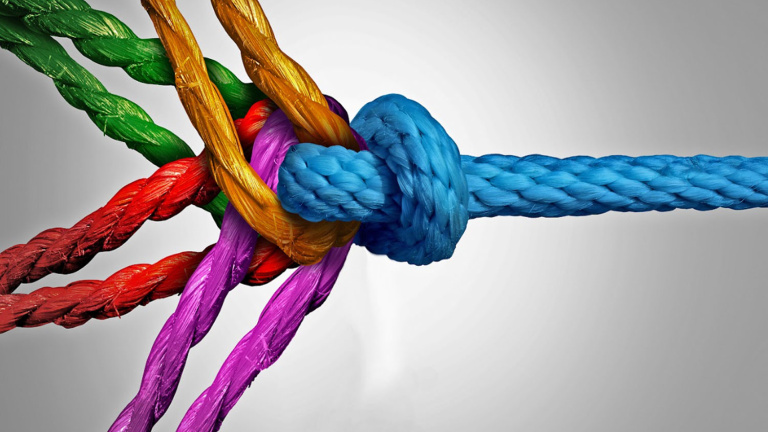
Multi-stakeholder platform delivers 'a minor miracle'
A very diverse group of stakeholders, known as the EU multi-stakeholder platform on the Sustainable Development Goals (SDGs), managed to agree on four key areas for support to enterprises. ‘A minor miracle’, declared the First Vice-President of the European Commission. According to the platform, the next EU leadership should focus on sustainable consumption and production, people’s skills, human rights and promoting transparent and trustworthy approaches.
The fact that platform members, despite coming from very different backgrounds and representing very diverse constituencies, managed to find common ground and strongly push together in the same direction can be considered a singular success. The recommendations constitute a new narrative on working with the private sector towards the SDGs, adding focus and momentum to the SDG process and a sustainable Europe by 2030. Among other things, the platform’s proposals seek to make corporate social responsibility (CSR) and sustainability part of the purpose and core strategy of organisations.
The platform identified four key areas where the EU should do more to support responsible business practices within and beyond Europe, thus contributing to SDG achievement:
• Support and incentivise sustainable consumption and production
• Invest in people’s skills and the future of work
• Adopt supportive approaches for ‘business and human rights’
• Encourage monitoring, transparency and trust building
Sustainable consumption and production
Companies are vital to reduce the EU’s environmental footprint. Circular production needs to be further promoted and incentivised, paying particular attention to global supply chains. Moreover, sustainability needs to be integral in the future vision of the European Industry Strategy 2030. That can be supported through the work of another major platform, the ‘Industry 2030’ High-Level Industrial Roundtable, established by the European Commission in 2018.
Ideally, the Commission would support a practical initiative to engage European businesses and industries in integrating sustainability into their vision, strategy and projects. The idea is to help business and industry accelerate the shift towards more sustainable business practices and devise solutions to societal sustainability challenges. For example, it could include rolling out sustainability industry strategies by all European industries, including a sector vision, action plan and targets, along with projects and progress reports.
People’s skills and the future of work
Europe needs to focus on and support initiatives towards more people-centred work environments, enabling lifelong learning, employability, job transitions, well-being at work, inclusive labour markets and balancing care with employment. For this, the EU should invest in research and innovation, people and human talents, while putting in place a governance structure that encourages engagement between enterprises, education and training establishments, particularly at secondary and tertiary levels. All such measures can contribute to sustainable livelihoods for people and the economic sustainability of enterprises.
Business and human rights
The EU should develop a coherent and effective approach on business and human rights, in close collaboration with enterprises and stakeholders. This would serve multiple objectives:
• Strengthening policy coherence and complementarity across different CSR initiatives
• Facilitating the creation of new sector and cross-sector collaborative platforms for responsible sourcing and sustainable supply chains
• Providing for investments in capacity building on business and human rights with partner countries
• Creating enabling conditions for global and local players to, for instance, incubate and implement practical and local solutions to help global implementation of the SDGs
Monitoring, transparency and trust building
All stakeholders, including enterprises, should be encouraged and supported to monitor progress on sustainability and engage with relevant stakeholders in outreach on the impact of activities and policies towards sustainable development. A concrete area where the EU could support enterprises, investors and stakeholders is in the monitoring of different reporting requirements for companies, at the EU, national and regional level. This would include, at the appropriate time, the transposition and implementation of the EU’s non-financial reporting rules (these rules require large companies to publish regular reports on the social and environmental impacts of their activities).
With the roll-out of the Commission’s Action Plan on Sustainable Finance, it will be important to look at the challenges and opportunities of disclosure relating to sustainable investments and sustainability risks, including impacts on access to finance in the real economy. Here the platform suggests making the European Lab on Corporate Reporting a principal hub for companies, investors and stakeholders with two primary aims: (1) to learn from each other on quality and efficient reporting processes and (2) to discuss specific reporting challenges, such as those emanating from environmental, social and governance (ESG); sustainability; and CSR reporting obligations. Links to existing EU financial and non-financial information reporting obligations for companies could also be explored.
The multi-stakeholder platform on the SDGs strongly encourages the new leadership of the European Commission to engage actively and effectively on these four areas. Moreover, platform members hope not only to see their mandate renewed, but also to secure enlarged participation and engagement of other interested stakeholders, as well as other key institutions, such as the European Parliament and the Council.
Backstory
The European Commission established the high-level multi-stakeholder platform in 2017 to support and advise on the delivery and implementation of the ambitious goals of the 2030 Agenda. The platform brings together 30 major stakeholders representing a range of interests and sectors. Members span academia, NGOs, businesses, civil society, and EU organs such as the European Economic and Social Committee and the European Committee of the Regions. The platform is tasked to advise the Commission on delivering the SDGs at the EU level and to work towards exchanges of best practices at the local, regional, national and EU level.
Platform members worked on a set of common proposals and recommendations, which they published in October 2018. These centre on the need for an overarching visionary and transformative sustainable Europe by 2030. The platform’s inputs single out areas where changes are needed, including governance and the EU’s existing toolbox.
In particular, the platform has identified key elements related to the sustainability of enterprises, where the EU could do more to support responsible business practices contributing to the SDGs. These are part of the report presented in October, and also emerge from discussions among members in the sub-group dedicated to CSR.
The proposals and recommendations refer in particular to (1) areas where policy coherence between several EU initiatives is important and (2) areas where support to business is crucial to promote their actions towards the SDGs, to enable them to learn from each other, and to support multi-stakeholder action and capacity building towards sustainability goals.
About the author
Lorena Sorrentino is Senior Project Manager at CSR Europe.
Ls@csreurope.org
Twitter: @lory_srnt
Read the full magazine issue








